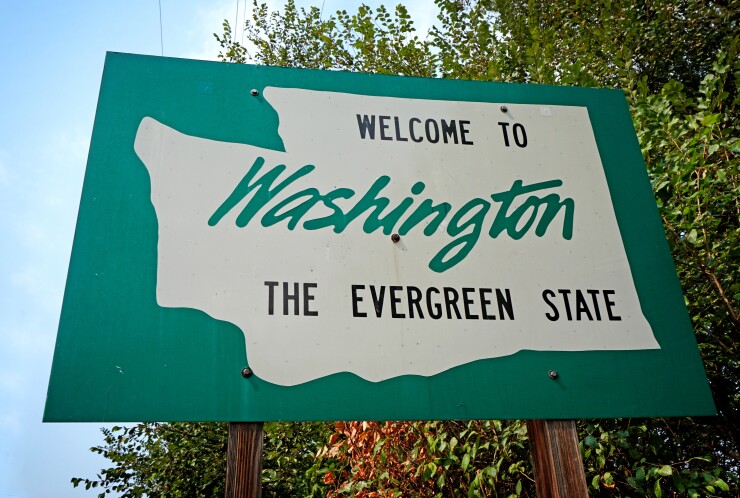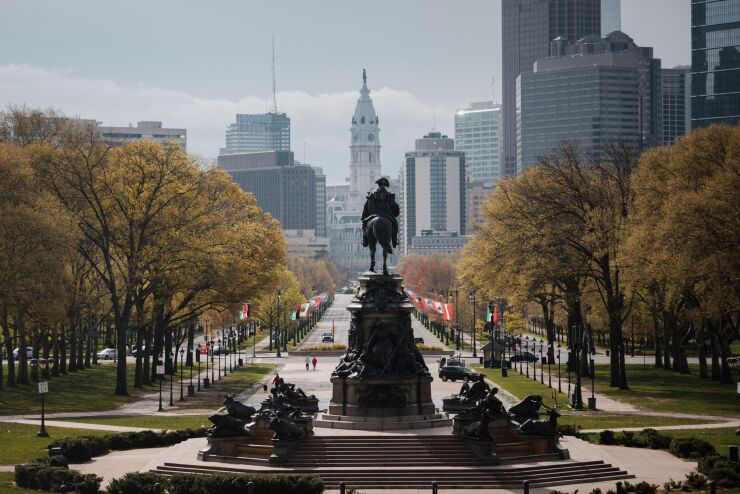
Advocates for public banking in Washington State are building support for a state-owned bank that would allow towns, cities and other municipalities to finance infrastructure projects.
Supporters of the initiative are holding town hall meetings to answer questions from community members. They've convinced other local groups to pass resolutions supporting the establishment of a public bank. And they're reaching out to the town, city and county governments that would be customers of the bank to get them on board.
A bill that has yet to make it out of the Washington State Senate would establish a public bank with a narrow scope, giving municipalities an alternative option to the bond market for financing a variety of infrastructure projects. Unlike some other bids for public banks, the proposed bank wouldn't serve individual consumers or businesses.
But the bill "leaves the door open to provide more robust services later on," said Marco Rosaire Rossi, the executive director of Washingtonians for Public Banking, a nonprofit created in 2022 with the goal of establishing a public bank in the state. Those services could include accepting deposits from municipalities, he said.
Washington State Sen. Bob Hasegawa, who first introduced a public banking bill to the state legislature in the wake of the 2008 financial crisis, pointed to the model's widespread international use.
"It's a proven strategy around the world," Hasegawa said. "But in the U.S., we rely on commercial banks for public financing rather than public banks for public financing."
There are indicators that support for public banking is growing across the country as well. In 2023, more than three-quarters of U.S. states have a group focused on public banking or a candidate with public banking as part of their platform, according to the Public Banking Institute, a nonpartisan group that promotes the establishment of public banks in the U.S.
The Los Angeles City Council last year voted to fund a study on the feasibility of a public bank, and city supervisors in San Francisco approved a plan to start the process of establishing a municipal bank. This year, Philadelphia's new mayor is expected to choose board members for the country's first municipal public bank,

"We do feel like public banking's time has come," said Ellen Brown, founder and co-chair at the Public Banking Institute.
Proponents of the public banking model proposed in Washington State say it could help solve a problem shared by cities and towns across the country: mounting government debt.
A state bank could make the cost of capital more affordable by lowering interest rates and getting rid of the fees typically charged when localities fund projects via the bond market, advocates said. Those cost savings mean towns and counties could pursue aggressive infrastructure projects without adding as much to their debt burdens.
"I kind of see it as inevitable if we want to really think about building for the future, for a type of infrastructure that we can't even imagine what it looks like right now but our kids will need," Hasegawa said.
Supporters of the bank hope it would alleviate another major challenge in Washington State — the lack of affordable housing. Once it has operated for five years, the infrastructure bank proposed in SB-5509 would be required to set aside 35% of its total annual lending capacity for projects that support housing in low- to moderate-income areas, according to the text of the bill.
A similar version of the Washington State bill
But advocates for public banking say they will keep working to spread awareness about the benefits of public banking.
"We are not going away," Rossi said. "We're pushing the issue and advocating for this alternative model of financing because we think it will benefit the public at large."





